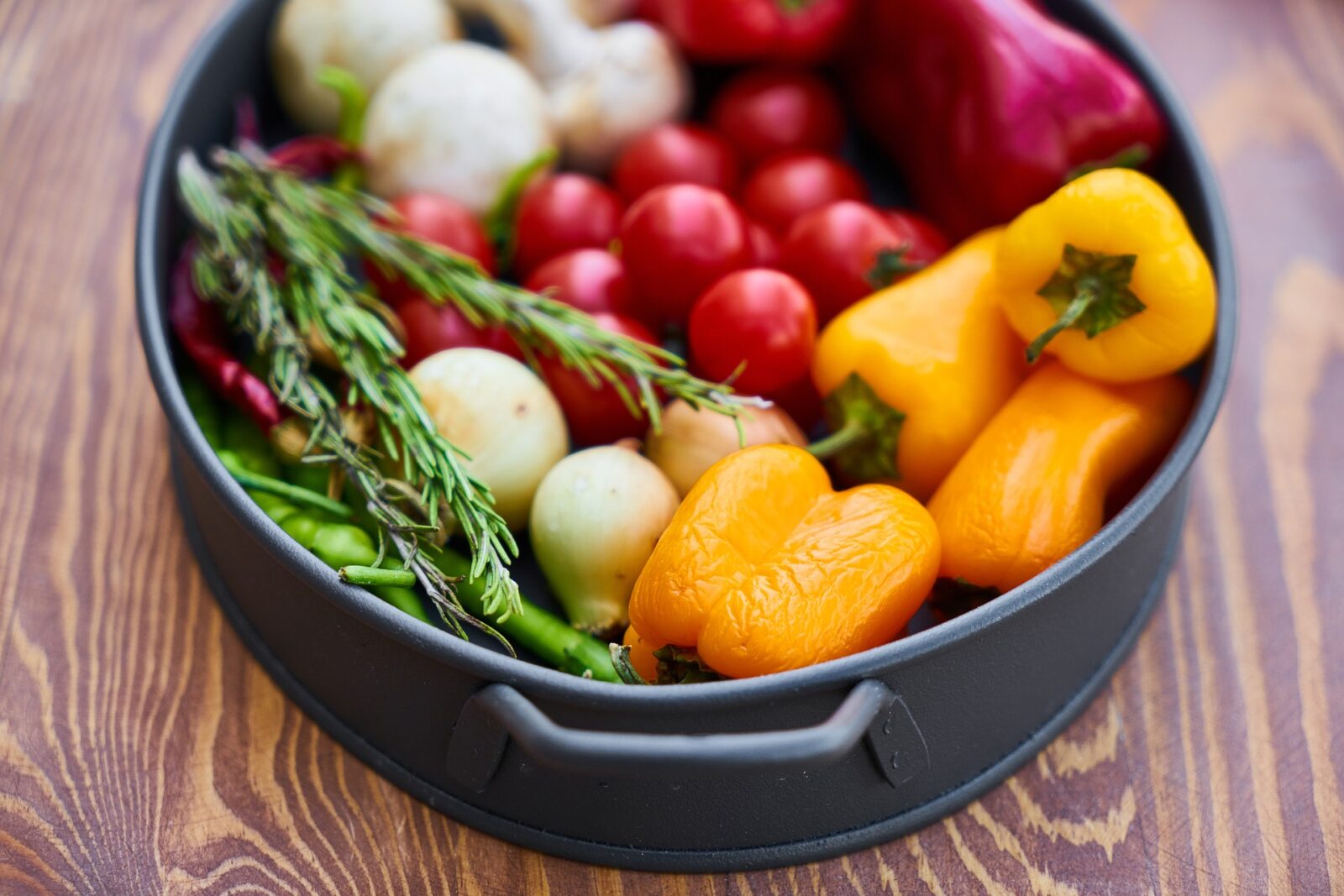Labels are all around us including the food we eat. Walk into a grocery store and you are bombarded with descriptions and words placed near or on various food. Organic, natural, healthy, low fat just to name a few. All these words and labels have meaning but is it what you think? Despite how familiar many food related words are, do you really know what they mean?
Food labels and nutrition claims

Words and descriptions on food products fall into 3 categories, the name of the food (ex. broccoli), legally mandated (ex. Nutrition Facts label) and marketing (everything else). The first one is obvious. You need to know what the product you are buying is especially if the container is not transparent. The second is required by federal regulation. It ensures you have basic information on the content of the product. That category includes the Nutrition Facts label and ingredient list as well as weight and other production information. There are also requirements around allergens although they go hand in hand with the ingredients. Everything else is marketing. The brand name, pictures, product descriptions and labels such as organic, natural, healthy, low fat and so on. None of these items are required on a label. They are there to influence your buying decision.
The words on food product packaging provide useful information you can use to make a healthy buying decision. Some of the marketing information is regulated to ensure that it’s applied consistently and uniformly across products. How can it be marketing while being regulated? Well, the FDA/USDA regulates the definition of various terms and how they can be used. It’s also marketing because the producer decides if, when and where they use it. What marketing terms am I talking about? Think organic, natural, healthy, low fat, reduced sodium, heart healthy just to name a few. Since those words are there for marketing do you KNOW what they mean or do you ASSUME? Let’s take a look at a couple popular words that often come up in nutrition related discussions.
Organic
The word “organic” is regulated by the USDA. It covers many consumer products including food. Foods that use that label have to meet strict and clearly defined requirements covering the entire life of the product. Life of the product refers to its growth, processing, packaging all the way to the consumer. The USDA provides requirements including what can and cannot be used in both growing and processing of the product. The requirements address production and processing of food products and not the nutrition of that product. An inspector may test a carrot for pesticide residue (prohibited in organic farming) but not if it contains more beta-carotene than a conventionally grown carrot.
The organic label tells you that the food was made following an approved process. That process banns pesticides, herbicides, chemicals or artificial additives but does not guarantee the nutrition of the product. It does not mean that the product is healthy or good for you. Organic mac-n-cheese or chips do not fit the health food definition and are not healthier than “regular” versions. Organic food often tastes better than conventionally produced items but that is not guaranteed. It is a biproduct of the production techniques. Generally speaking, USDA organic regulations are based on sustainable food production practices which are better for our planet not necessarily nutrition.
Natural

There are many foods in stores sporting the “natural” label. Over 65% of food shoppers look for this label on foods and use it to make buying decisions. The story of this label is not as clear cut. The word “natural” is not regulated by any regulatory agency. There are many interpretations of the word but not one accepted definition exists. The FDA states that natural foods should have “nothing artificial or synthetic added”. It does not officially regulate this as a requirement, however. What does that means to you? No guarantees that pesticides, herbicides or chemicals were not used in its production. The word natural also does not mean that the food has any nutritional or health benefit over other foods. Essentially what you often get is conventionally grown or produced food, a fancy label and a premium price.
Are organic and/or natural foods better for me?
Is one or the other better for my health? The answer is once again not that clean cut because it’s all about comparisons. Are organic or natural potato chips good for you? The answer is simple, not any more than regular potato chips. Are organic carrots more nutritious than conventional carrots? Probably not, based on available research. Are they tastier? I would say yes based on personal experience. If you are concerned about pesticides and chemical residue than organic may be a better choice.
Here is the thing, nutritious food is only good for you if you eat it. Organic food is more expensive then conventionally grown options. If buying only organic food means you eat fewer fruits and vegetables, because of the price, then it is not better for you. Eating high quality protein, fruits, vegetables, beans and grains is more important than a production label. There are plenty of conventional options that give you the nutrition, low pesticides at a fraction of the cost.
What about locally grown food?

Local means fresh. Yes, it’s a slogan but one with an important message. Most produce, conventional, natural or organic, travels far to get to your store. Each day of travel affects its nutritional value in a negative way. Local food generally hits the shelves of your store in less than 48 hours and if you are buying from a local farm stand it’s often picked the same day. That means that the food retains its peak nutritional value, a bonus for your health. Many small farms also practice sustainable agriculture even if they are not certified organic. Conversely, the organic label does not mean the food came from a small farm, in fact most commercially available organic food comes from large farms and production facilities. Of course, besides freshness, nutrition and local variety buying local supports the local economy and small farmers.
Is organic and natural worth the money?
Bottom line we all make food decisions based on our preferences, budgets and the information we find. Organic and natural foods are often more expensive than conventionally grown foods. They also may not be as widely available as other options. Answering, is it worth it to go organic or local, is complicated because it’s a personal decision. You need to decide if you want to avoid pesticides and other chemicals, if you can afford the higher prices or if you can regularly visit a local farm.

Personally, I do not spend my money on the “natural” food label since it holds little tangible meaning. I buy organic produce because I think it tastes better, not because I think it’s more nutritious. I get my in-season produce from the Oxen Hill Farm CSA which offers organic produce. Excess is frozen for use in the off season. The combination of supporting a local farm, produce options, taste and price is a winning option for me.
I rarely buy “fresh” organic produce in the grocery store in the off-season. Frozen organic produce saves me time on prep and money. It is often cheaper that “fresh” conventional produce. Most frozen produce is frozen within 24-48 hours of being picked locking in that nutrition. If something calls for fresh produce, I look for the best options that fit my food budget. Organic carrots and apples are on my organic list due to pesticides. Broccoli and cauliflower I often buy conventionally grown (they have really low pesticide residue rates).
Since there is no nutritional difference between organic and regular chips I treat them like the treat they are and save money. I do like one organic brand of tortilla chips based on pure taste preference, the rest I let the kids choose. I hope this illustrates that I make these decisions based on what matters and works for me and my family. Labels provide just some of the information I use in my decisions.
Aside: I use “fresh” in quotes because most “fresh” produce travels for weeks before it gets to your store. During its travels it can lose as much as 50% of its more fragile vitamin content. Unprocessed would be a better label since weeks old rarely equals fresh.
Bottom Line
Labels on food provide information you can use to make your own buying decisions. They are useful if you know what they mean. Making informed buying decisions means taking the time to know what the information actually means. Assumptions can cost you money and negatively impact your health. Used appropriately food labels can help you make healthier choices and save you money if you know what it actually means. You owe it to yourself to take the time to understand food labels and nutrition claims.
Contact me with questions about lifestyle change, nutrition and food labels at [email protected]. Understanding food labels and nutrition claims can make a significant difference in your health and your wallet. You can learn more about this important topic when you join my program “Understanding food labels and nutrition claims”. It is packed with details about food labels and practical tips to help in your everyday life. You can preview the course content before you register. Select the preview button in the course curriculum or visit the programs page.

